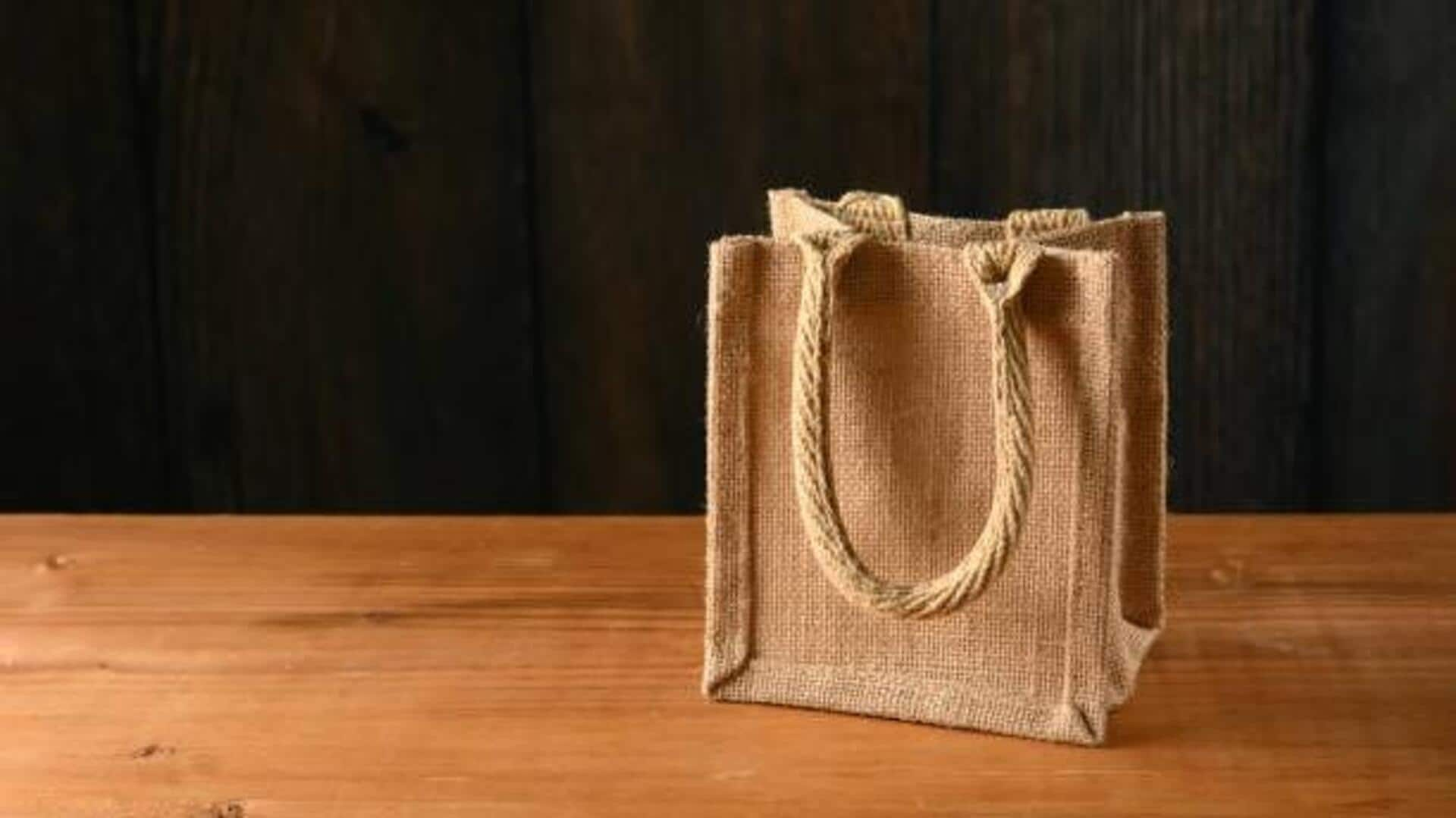
Jute bags: An eco-friendly and affordable choice
What's the story
Jute, a natural fiber, is increasingly being preferred as an eco-friendly option for manufacturing bags. Durable and biodegradable, jute provides a sustainable solution to emerging environmental issues caused due to the use of plastic bags. Using jute, one can manufacture multi-purpose bags which are not just economical but also environment-friendly. Here's looking at some tips to use jute efficiently for making versatile and economical bags.
#1
Understanding jute's benefits
Jute is a super renewable resource that grows fast without fertilizers or pesticides. It needs very little water compared to other fibers, making it an eco-friendly option. Moreover, jute fibers are strong and durable, making sure the bags made from them will last through regular use. The biodegradable nature of jute makes it even more appealing as it breaks down naturally without any harmful residues.
#2
Designing multi-purpose bags
When designing jute bags, versatility should be a key consideration. These bags can be crafted in various sizes and styles to suit different needs such as shopping totes, beach bags, or office carriers. Incorporating features like pockets or adjustable straps can enhance their functionality. By focusing on practical designs that cater to multiple uses, manufacturers can increase the appeal of their products while promoting sustainability.
#3
Cost-effective production techniques
Producing jute bags at affordable prices requires optimizing production processes and sourcing materials cost-effectively. Bulk buying of raw materials can reduce costs by leaps and bounds. Also, hiring skilled artisans who specialize in working with jute can guarantee high-quality craftsmanship at affordable prices. Streamlining production techniques like automated cutting and stitching can further bring down the cost of manufacturing without compromising on product quality.
#4
Promoting eco-friendly practices
Encouraging people to adopt jute bags is critical for the environment. Businesses must start educational campaigns to highlight the advantages of these eco-friendly options. Such efforts help reduce plastic waste around the world and promote sustainable practices in local communities, especially in India's rural heartland where jute is widely cultivated.